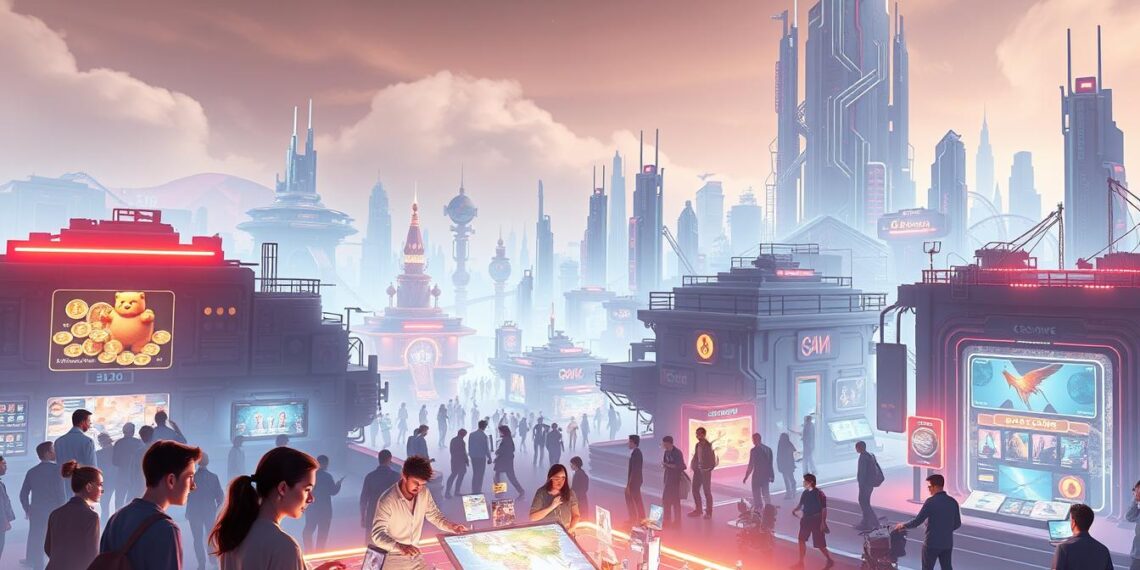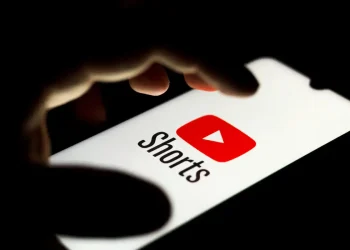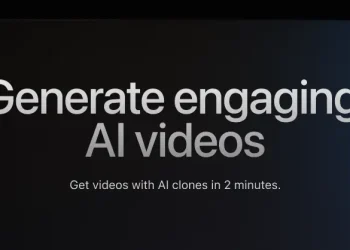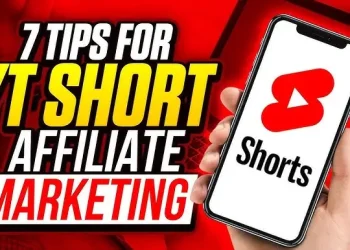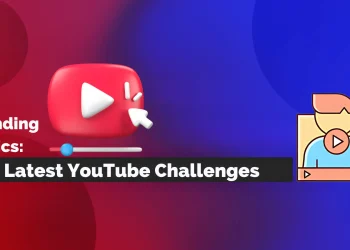Did you know the content creation industry could surpass $200 billion in value by 2027? Goldman Sachs’ latest report reveals a seismic shift: traditional income models are crumbling as blockchain-powered tools redefine ownership and monetization. This isn’t just evolution—it’s a revolution.
For decades, creators relied on middlemen to distribute their work. Now, decentralized frameworks let artists, writers, and innovators keep up to 95% of their earnings. Blockchain ensures transparent royalties, while NFTs turn digital art into verifiable assets. Platforms like Friend.tech prove it: users earn directly from their communities through tokenized memberships.
What’s driving this change? Control. A single musician recently made $12 million in minutes by releasing exclusive tracks as NFTs. DAOs (decentralized autonomous organizations) now fund projects through collective voting—no corporate gatekeepers. Institutions are noticing too: crypto-native platforms saw a 300% surge in institutional demand last year.
Key Takeaways
- Decentralized platforms let creators retain nearly all earnings
- Blockchain ensures transparent royalty tracking
- Goldman Sachs predicts $200B+ creator economy by 2027
- NFTs enable direct ownership of digital assets
- DAOs replace traditional funding models
- Institutional crypto demand tripled in 2023
The Evolution of Content Creation in the Digital Age
The landscape of content production has transformed faster than dial-up internet became obsolete. Twenty years ago, gatekeepers like studios and publishers held all the keys. Today, anyone with a smartphone can build a global audience.
Traditional Models vs. Digital Transformation
Legacy systems operated like exclusive clubs. Television networks and radio stations decided what audiences consumed. The rise of YouTube (2005) and Instagram (2010) flipped the script. Suddenly:
- 45% of U.S. creators started earning through platform ad shares
- Average earnings jumped 63% compared to pre-digital gigs
- Global distribution became as simple as hitting “upload”
The Shift Toward Decentralization
Platform algorithms still control visibility—for now. Emerging technology lets creators bypass centralized systems entirely. Blockchain networks enable direct fan transactions, while AI-powered tools automate income streams without middlemen.
Consider TikTok’s recent pivot: integrating NFT features for creator collectibles. This mirrors broader trends where digital work becomes ownable assets. Early adopters report 80% higher retention rates when audiences hold stake in projects through tokens.
Web3 and the Creator Economy
Imagine keeping every dollar you earn from your art—no middlemen taking cuts. Blockchain-powered systems make this possible through decentralized ownership models. Artists now bypass traditional platforms that historically claimed 30-70% of profits.
Empowering Innovators Through Digital Asset Control
Smart contracts automate royalty payments across resales—a game-changer for musicians and visual artists. One electronic producer earned $480,000 in secondary market royalties last quarter through NFT-enabled tracks. Unlike legacy systems, these payments occur instantly via self-executing code.
| Traditional Model | Decentralized Model | Impact |
|---|---|---|
| 45% platform fees | 3% network fees | +42% creator income |
| Delayed payments | Real-time settlements | Improved cash flow |
| Centralized IP control | Creator-owned rights | Full licensing autonomy |
Customizable Revenue Streams Emerge
Token-gated communities let fans access exclusive content through membership NFTs. This approach generated $28 million for early adopters in Q1 2025. Creators set their own terms:
- Recurring subscription income
- Dynamic pricing based on demand
- Automatic reward distributions
These tools shift power dynamics completely. When fans become stakeholders through token ownership, engagement metrics triple compared to conventional platforms.
NFTs, Smart Contracts, and Digital Scarcity
What if your digital artwork couldn’t be duplicated or stolen? Blockchain makes this possible through non-fungible tokens (NFTs), transforming how we define ownership in the digital age. These unique assets use cryptographic proofs to verify authenticity—turning memes, music, and videos into rare collectibles with provable scarcity.

Building Trust with Blockchain Technology
Blockchain acts as an unbreakable ledger. Every transaction and ownership transfer gets recorded publicly. This eliminates doubts about an asset’s history. For example, visual artist Beeple sold an NFT collage for $69 million—with buyers knowing they owned the original piece, not a copy.
Three ways blockchain builds confidence:
- Immutable records prevent tampering
- Transparent history tracks every owner
- Decentralized verification removes single points of failure
Transparent Royalty Distribution and IP Protection
Smart contracts automate payments without lawyers or platforms. Musicians now earn 10% automatically on secondary sales—something AI-driven systems can’t replicate ethically. Compare traditional vs. blockchain models:
| Traditional | Blockchain | Benefit |
|---|---|---|
| Manual royalty checks | Instant payouts | No delays |
| Middlemen take 40%+ | 3-5% network fees | Higher profits |
| Easy copyright theft | Embedded IP rights | Legal protection |
Challenges remain—like educating creators on gas fees—but the upside is clear. When fans buy tokens linked to your work, they’re investing in your success. That’s the future of digital creation.
Decentralized Platforms, DAOs, and Crowdfunding for Creative Projects
Traditional crowdfunding platforms take 5-12% in fees—decentralized alternatives slash that to under 2%. Platforms like Lever.io prove it: their vetted marketplace connects projects directly with backers, cutting out middlemen while ensuring transparency. This shift lets creators focus on what matters—their craft.

Innovative Funding Models with DAOs
DAOs transform how funding works. Instead of pitching to venture capitalists, creators propose ideas to decentralized communities. Members vote using governance tokens, and winning projects receive pooled resources. For example:
- Music DAOs fund albums through fan-driven decisions
- Art collectives use shared treasuries for gallery exhibitions
- Film crews secure budgets via tokenized investments
One indie game studio raised $1.8 million this way—faster than Kickstarter campaigns.
Community-Driven Investments and Tokenization
Tokenization turns audiences into stakeholders. Platforms like Royalty on Polygon let fans buy tokens tied to a song’s streaming revenue. This creates:
| Traditional Support | Tokenized Engagement | Impact |
|---|---|---|
| One-time donations | Recurring revenue shares | +300% fan retention |
| Passive consumption | Active participation | Deeper connections |
| Limited feedback | Governance rights | Collaborative creation |
When communities hold tokens, they’re invested long-term. It’s not just funding—it’s building legacies together.
Influencer Marketing and Community Engagement in Web3
Personal brands now rival corporations in earning potential—thanks to blockchain’s disruptive power. Platforms are evolving beyond sponsored posts, letting audiences own pieces of their favorite personalities’ success through tokenized engagement. This shift turns casual viewers into vested partners.
Emergence of Web3 Influencer Marketplaces
New marketplaces let influencers mint exclusive content as digital assets. Fans purchase tokens to access behind-the-scenes footage, early product drops, or private Q&A sessions. One lifestyle creator earned $120,000 in 48 hours by releasing limited-edition “access passes” tied to live events.
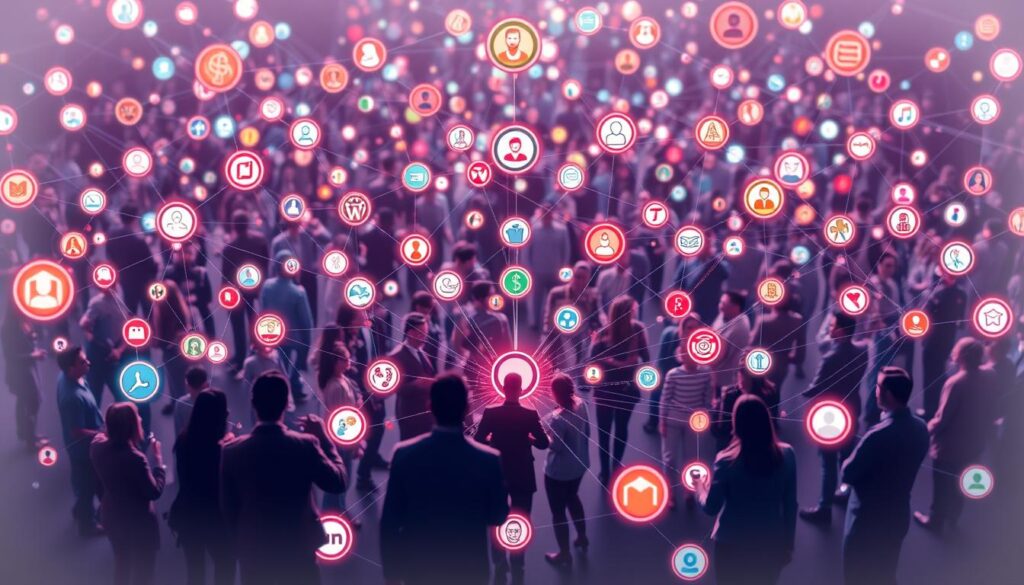
These platforms slash fees to 1-3%, compared to traditional agencies taking 20-50%. Metrics show token holders engage 4x more than passive subscribers. Innovative strategies blend video content with blockchain rewards—like bonus tokens for sharing campaigns.
Friend.tech and Social Token Dynamics
Friend.tech’s model proves viral potential: users buy “keys” to interact with influencers, creating a real-time value market. When a tech reviewer’s key price spiked 890%, early supporters cashed out profits while boosting the creator’s visibility.
Three pillars define successful social token ecosystems:
- Scarcity: Limited token supplies drive demand
- Utility: Tokens unlock tangible benefits
- Liquidity: Easy trading keeps markets active
As one musician tweeted: “My fans aren’t just listeners anymore—they’re co-owners of my journey.” This mindset fuels the rise of decentralized communities where every interaction holds financial potential.
Interoperable Tools, Analytics, and Data-Driven Insights
Data transforms guesswork into strategy. Modern innovators need more than follower counts—they require actionable insights across every channel. Cross-platform analytics reveal what resonates, who engages, and where opportunities hide.

Measuring Engagement Across Multiple Platforms
Legacy analytics tracked views or likes in isolation. Today’s tools connect dots between Discord chats, NFT ownership, and YouTube watch time. Kazm, for example, maps how token holders interact with content—proving community loyalty drives 73% longer engagement.
Three ways these systems reshape outcomes:
- Real-time dashboards show trending topics
- Automated alerts flag drops in interaction
- Predictive models suggest content tweaks
| Traditional Analytics | Modern Solutions | Advantage |
|---|---|---|
| Manual data stitching | Auto-synced metrics | Save 15+ hours weekly |
| Single-platform focus | Cross-channel insights | Identify hidden patterns |
| Basic demographic reports | Behavioral forecasting | Boost retention by 40% |
“Analytics used to be rearview mirrors. Now they’re GPS systems showing where to pivot next.”
Seamless experiences matter. When fans move from TikTok to Patreon without friction, conversion rates jump 62%. Tools like Orbit.fan track these journeys, helping creators refine outreach. Data isn’t just numbers—it’s the blueprint for smarter decisions.
AI Innovations and Their Impact on the Creator Economy
73% of digital artists now use AI tools to refine their work—but what happens when machines help shape human creativity? Intelligent algorithms are no longer just assistants; they’re collaborators redefining how original content gets made and protected.
Integrating AI with Blockchain for Creative Integrity
Blockchain anchors authenticity while AI accelerates innovation. Tools like Bria.ai scan millions of creations to verify originality before minting NFTs. This fusion lets artists:
- Protect intellectual property automatically
- Generate style variations without plagiarism risks
- Track inspiration sources across decentralized ledgers
One photographer used this combo to license 12 derivative artworks from a single image—all while maintaining 100% ownership. As OpenAI’s CEO noted: “AI amplifies imagination, but blockchain ensures it stays yours.”
Balancing AI-Generated Content with Human Creativity
Over-automation threatens authenticity. Platforms like Runway ML strike a balance—their AI edits video rough cuts, but final decisions stay human. Metrics show hybrid workflows boost output by 140% without losing artistic voice.
Three rules for ethical AI use:
- Disclose AI involvement transparently
- Keep core creative decisions manual
- Use algorithms for repetitive tasks only
By blending machine efficiency with human intuition, creators unlock new ideas while preserving what makes art uniquely theirs. The future isn’t human vs. AI—it’s both, working in concert.
New Revenue Streams and Monetization Strategies for Creators
Revenue models are exploding faster than viral TikTok trends—and creators hold the detonator. Cutting-edge tools let artists bypass gatekeepers entirely, forging direct financial relationships with supporters. This shift unlocks income streams that reward loyalty and creativity equally.
Direct-to-Consumer Sales and Tokenized Communities
Platforms like Sound.xyz let musicians sell tracks directly to fans as limited editions. Each purchase includes built-in royalty rights, ensuring artists earn on every resale. Token-gated Discord communities take this further—fans holding specific NFTs get exclusive demos or voting rights on setlists.
Three game-changing benefits:
- 90%+ revenue retention versus 30% on streaming platforms
- Automated payouts via smart contracts
- Real-time analytics showing fan preferences
Alternative Models for Sustaining Income
Dynamic pricing reshapes earnings potential. Indie band The Midnight Crowd used NFT-based crowdfunding to finance their tour—offering tiered perks like backstage passes and co-written songs. Fans who bought “tour tokens” earned 5% of ticket sales through blockchain-tracked revenue shares.
| Traditional Patronage | Tokenized Support | Result |
|---|---|---|
| One-time donations | Recurring income streams | +220% artist revenue |
| Generic thank-yous | Personalized rewards | 89% fan retention |
| Limited interaction | Co-creation opportunities | Viral campaign growth |
As electronic producer Zola Moon explains: “My tokens aren’t just cash—they’re golden tickets to build something lasting with people who care.” This mindset fuels sustainable careers in today’s attention economy.
Conclusion
The future of creative independence is being rewritten—not by corporations, but by code. Blockchain-powered ecosystems let artists retain 95% earnings while forging direct bonds with supporters. From music producers using NFTs for album funding to streaming platforms built on community governance, every sector feels this seismic shift.
Goldman Sachs’ $200 billion prediction now seems conservative. DAOs fund films through collective votes. Fans earn alongside creators via tokenized rewards. These tools aren’t just changing the game—they’re building a fairer playing field.
Three pillars define success in this new landscape: owning your digital footprint, leveraging smart contracts for real-time royalty payments, and nurturing communities as stakeholders. Global audiences now participate in creative journeys, not just consume outcomes.
Digital entrepreneurs have a choice: cling to outdated models or embrace systems where value flows directly to visionaries. The path forward is clear. Decentralized tools are paving the way for a world where creativity thrives without intermediaries. Your next move determines where you stand in this revolution.
FAQ
How does blockchain technology empower creators beyond traditional platforms?
Blockchain shifts ownership to creators through NFTs and smart contracts, allowing direct revenue from sales, royalties, and community rewards. Unlike Instagram or YouTube, decentralized platforms like Audius or Mirror eliminate middlemen, ensuring creators retain control over pricing, distribution, and intellectual property.
Can NFTs protect digital artists from copyright infringement?
Yes. NFTs embed ownership data on blockchains like Ethereum, creating tamper-proof records. Platforms like OpenSea and Rarible enable artists to program royalties into smart contracts, automatically compensating them for secondary sales—a feature absent in traditional art markets.
What role do DAOs play in funding creative projects?
DAOs (Decentralized Autonomous Organizations) let communities pool resources via tokens to fund projects transparently. For example, PleasrDAO crowdfunds digital art acquisitions, while platforms like Juicebox let musicians pre-sell tokens for album releases, aligning fan support with creative output.
How do social tokens deepen fan engagement in Web3?
Tokens like those on Friend.tech let fans access exclusive content, voting rights, or live events. Rapper Latashá’s $LATASHÁ token grants holders early music drops, creating a circular economy where engagement directly fuels creator income.
Does AI threaten authenticity in blockchain-based creator ecosystems?
AI tools like Midjourney aid content creation but risk oversaturation. Blockchain counters this by verifying human-made work via platforms like Numbers Protocol, which certifies media origins. This hybrid approach balances efficiency with trust in creative integrity.
Why are decentralized platforms better for niche creators?
Services like Patreon take 5-12% fees, while Web3 platforms like Foundation charge under 5%. Lower costs let creators experiment with micro-communities—podcasters using Zora to mint episode NFTs or chefs tokenizing recipes on Manifold for superfans.
How do Web3 analytics tools differ from conventional metrics?
Tools like Dune Analytics track cross-platform engagement—NFT holdings, token interactions, and DAO votes—instead of just views or likes. This data helps creators identify high-value supporters and tailor rewards, moving beyond vanity metrics.
